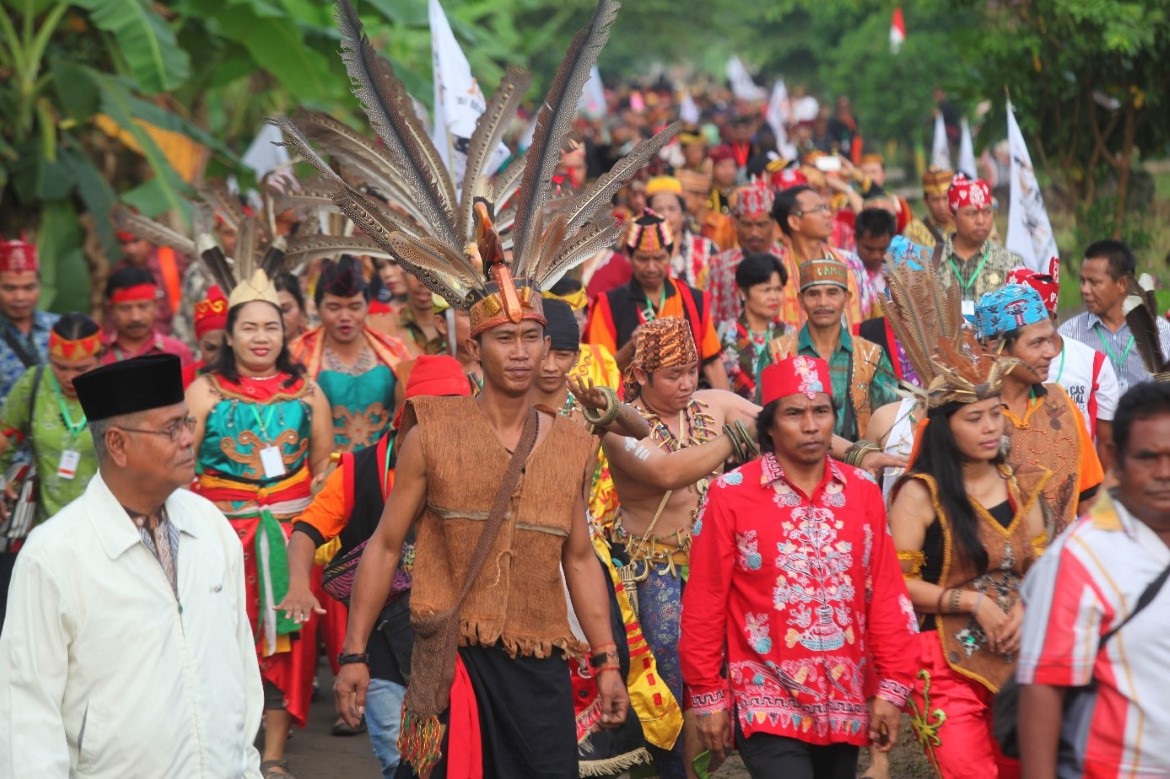
Advancing the Existing Forest and REDD+ Related Laws and Policies for Recovering and Ensuring the Rights of Indigenous Peoples to Land, Territories and Resources in Indonesia
Organization
AMANWhy
Indigenous peoples have been managing forest lands and resources through customary management systems governed by customary laws. However, land tenure systems of Indigenous Peoples are not acknowledged by the forestry law which declares all forest lands in Indonesia as state forest. Local communities can manage state forest under community management, but community management is minimal. Therefore, there is a need to strengthen the indigenous peoples’ rights to their territories and their management of it.
What
Budget
Norad intends to offer up to NOK 36 million for the period June 2016- to December 2020.
Indigenous peoples’ Alliance of the Archipelago (AMAN) will implement a project aiming to achieve full recognition of indigenous territories and improved livelihood opportunities. The project has four outcomes:
- The Government of Indonesia has advanced the existing policies and legal frameworks that recognize and protect the rights of indigenous peoples;
- Indigenous peoples effectively participate in the development of laws and policies related to sustainable forest management;
- Indigenous peoples are able to monitor the implementation of law, policies and programs related to forest and REDD+;
- Indigenous peoples including women and youth in target areas are able to implement self-determined development including forest and REDD+ related activities based on the indigenous maps.
The project will target indigenous peoples including indigenous women and youth, policy makers from local to national level and CSOs. By being able to document the customary land tenure of Indigenous Peoples and working with policy makers from local to national level, AMAN aims to facilitate the process of giving Indigenous Peoples land tenure of their customary land. The work builds on a Constitutional Court Ruling from 2013, which stated that customary forests should not be part of state forest. The work also builds on President Joko Widodo’s election campaign promise to address problems faced by indigenous peoples. This gives a momentum to work towards achieving full recognition of indigenous territories and improved livelihood opportunities.
Expected results
The first project phase runs from June 2016 – May 2018. It is expected that the project will contribute to advancement of policies and legal framework at national and district level, engage indigenous peoples in development of laws and policies for sustainable forest management, mapping customary land and establish green community enterprises and products.
In 2018, Norad was tasked with assessing an additional application from AMAN.
A new agreement was signed with AMAN on September 12th, with a total funding of NOK 14 000 000 for the period 2019-2020.
The four outcomes for this project are:
- National law, local regulations and district chief decrees on IPs rights are passed and are meaningfully implemented
- Indigenous Peoples can safely participate in public conversations and collective decision-making concerning their rights, land and resources
- Indigenous Peoples develop viable livelihood opportunities based on the sustainable management of their land and natural resources, as well as on the protection of their traditional indigenous knowledge
- AMAN improves its effectiveness in supporting and promoting the rights and interests of Indigenous Peoples in Indonesia
Partners
AMAN national, regional and local chapters, and wing organizations.
Geographic location
Indonesia
About the project descriptions
The project descriptions give insight in the NICFI portfolio for civil society organisations supported by Norad.
The descriptions presented are written by the project partners. Only minor edits have been undertaken by Norad. Their presentations and conclusions do not necessarily reflect the views of Norad.
